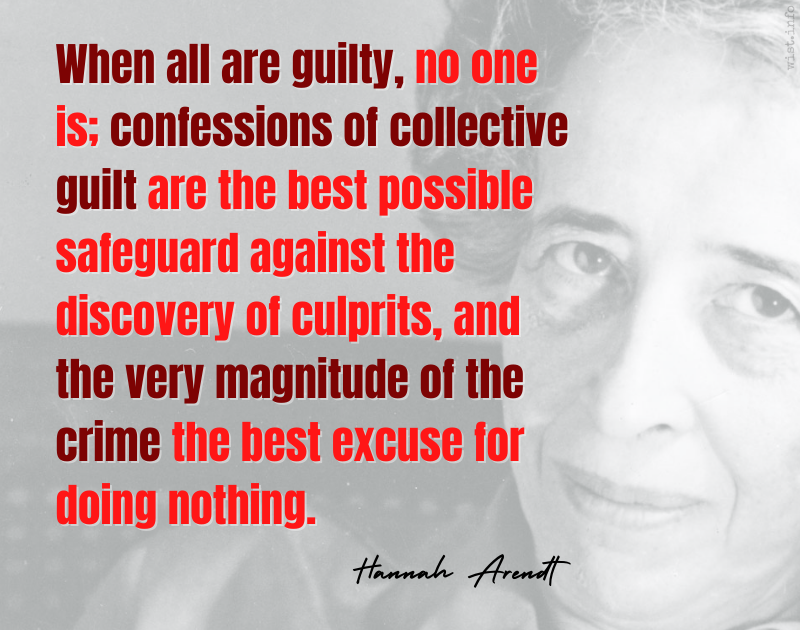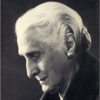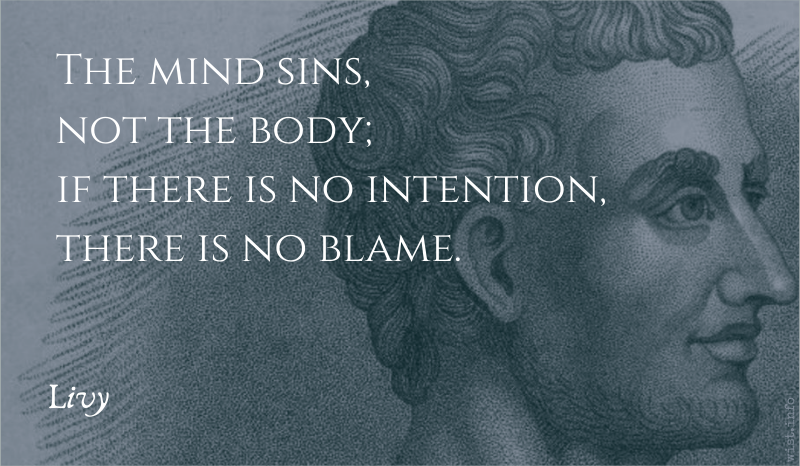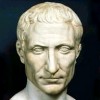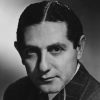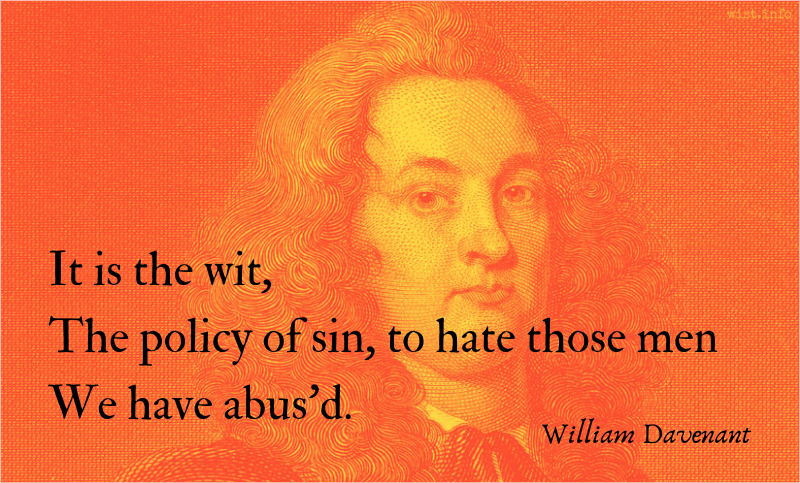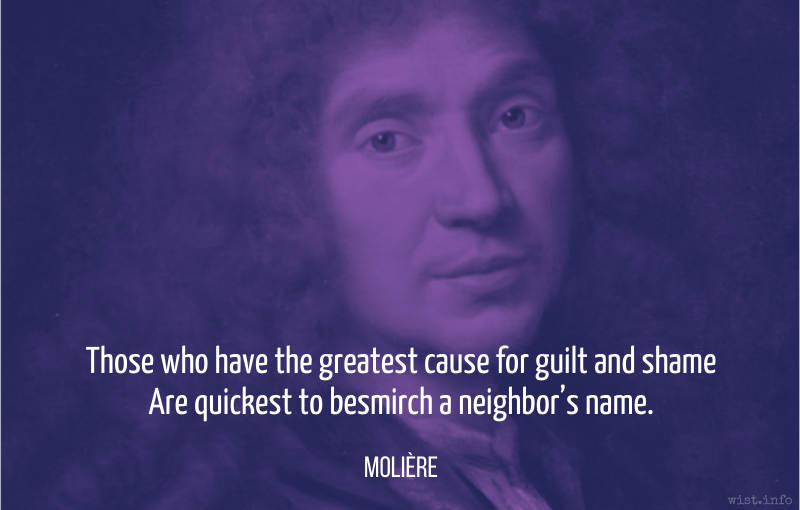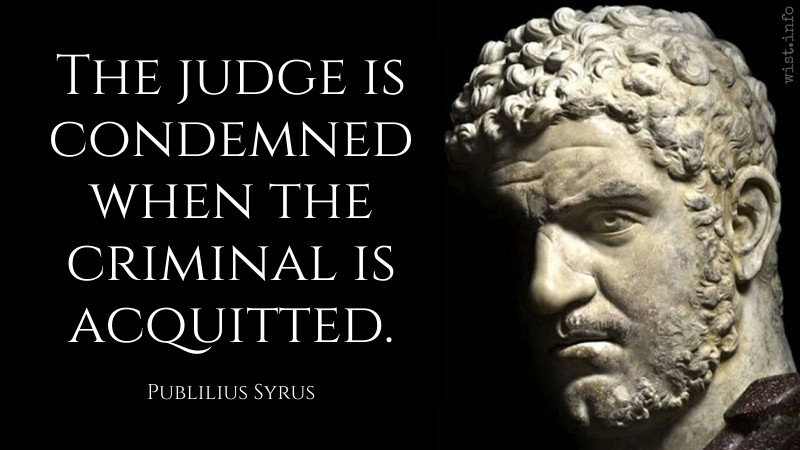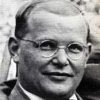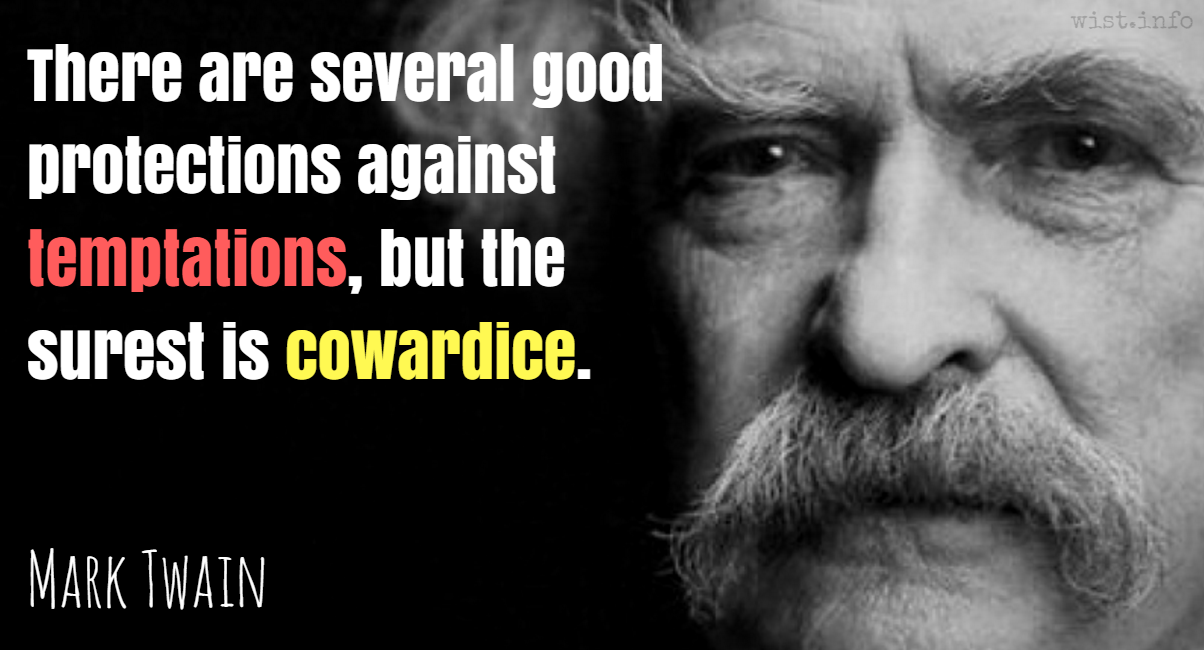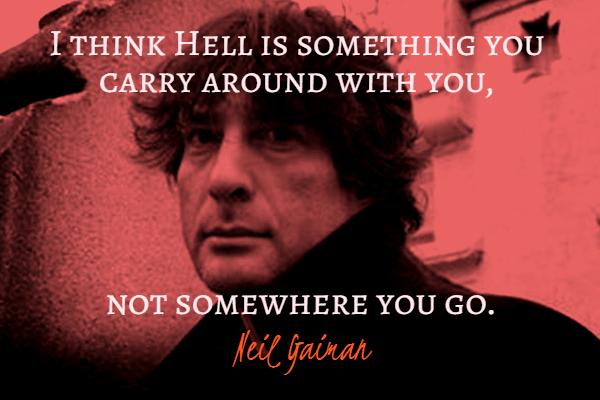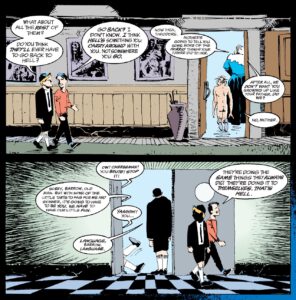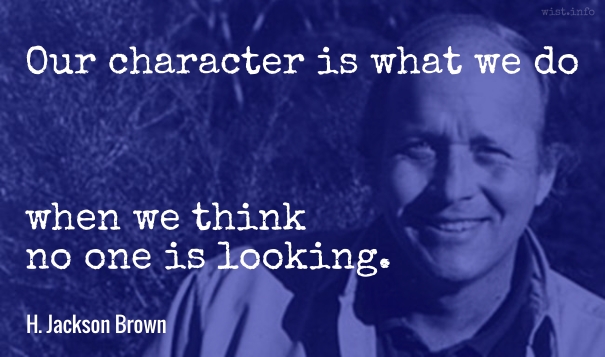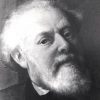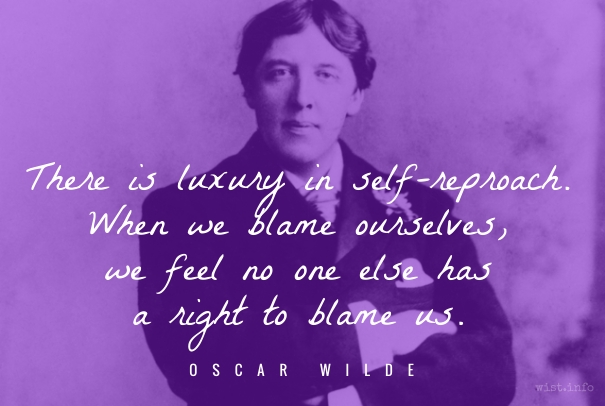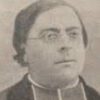We do not make people humble and meek when we show them their guilt and cause them to be ashamed of themselves. We are more likely to stir their arrogance and rouse in them a reckless aggressiveness. Self-righteousness is a loud din raised to drown the voice of guilt within us. There is a guilty conscience behind every brazen word and act and behind every manifestation of self-righteousness.
Eric Hoffer (1902-1983) American writer, philosopher, longshoreman
True Believer: Thoughts on the Nature of Mass Movements, Part 3, ch. 14, § 69 (1951)
(Source)
Quotations about:
guilt
Note not all quotations have been tagged, so Search may find additional quotes on this topic.
Awl plezzures are lawful that don’t end in making us feel sorry.
[All pleasures are lawful that don’t end in making us feel sorry.]Josh Billings (1818-1885) American humorist, aphorist [pseud. of Henry Wheeler Shaw]
Everybody’s Friend, Or; Josh Billing’s Encyclopedia and Proverbial Philosophy of Wit and Humor, ch. 148 “Affurisms: Ink Brats” (1874)
(Source)
HERMIONE: Since what I am to say must be but that
Which contradicts my accusation, and
The testimony on my part no other
But what comes from myself, it shall scarce boot me
To say “Not guilty.” Mine integrity,
Being counted falsehood, shall, as I express it,
Be so received. But thus: if powers divine
Behold our human actions, as they do,
I doubt not then but innocence shall make
False accusation blush and tyranny
Tremble at patience.William Shakespeare (1564-1616) English dramatist and poet
Winter’s Tale, Act 3, sc. 2, l. 23ff (3.2.23-33) (1611)
(Source)
A Sunday-school is a prison in which children do penance for the evil consciences of their parents.
H. L. Mencken (1880-1956) American writer and journalist [Henry Lewis Mencken]
A Little Book in C Major, ch. 3, § 3 (1916)
(Source)
Variant:
SUNDAY SCHOOL. A prison in which children do penance for the evil conscience of their parents.
A Book of Burlesques, "The Jazz Webster" (1924)
If a person transgresses any of these rules, the penalty shall fit the crime.
[Quod quis earum rerum migrassit, noxiae poena par esto.]
Marcus Tullius Cicero (106-43 BC) Roman orator, statesman, philosopher
De Legibus [On the Laws], Book 3, ch. 4 / sec. 11 (3.4/3.11) [Marcus] (c. 51 BC) [tr. Rudd (1998)]
(Source)
A variant on the Latin legal maxim, culpae poenae par esto, usually rendered "Let the punishment fit the crime" (see also Gilbert & Sullivan, The Mikado (1885)).
(Source (Latin)). Alternate translations:
If any one shall infringe any of these laws, let him bear the penalty.
[tr. Barham (1842)]
If any one shall infringe any of these laws, let him be liable to a penalty.
[tr. Barham/Yonge (1878)]
The punishment for violation of any of these laws shall fit the offense.
[tr. Keyes (1928)]
Whatever of these someone has violated, let the penalty be equivalent to the crime.
[tr. Zetzel (1999)]
Whatever of these matters someone departs from, let there be a penalty equal to the wrongdoing.
[tr. Fott (2013)]
Whatever someone has violated, let the punishment match the offense.
[Bartelett's]
I still thought that it is not we who sin but some other nature that sins within us. It flattered my pride to think that I incurred no guilt and, when I did wrong, not to confess it so that you might bring healing to a soul that had sinned against you. I preferred to excuse myself and blame this unknown thing which was in me but was not part of me. The truth, of course, was that it was all my own self, and my own impiety had divided me against myself. My sin was all the more incurable because I did not think myself a sinner.
[Adhuc enim mihi videbatur non esse nos qui peccamus, sed nescio quam aliam in nobis peccare naturam, et delectabat superbiam meam extra culpam esse et, cum aliquid mali fecissem, non confiteri me fecisse, ut sanares animam meam, quoniam peccabat tibi, sed excusare me amabam et accusare nescio quid aliud quod mecum esset et ego non essem. Verum autem totum ego eram et adversus me impietas mea me diviserat, et id erat peccatum insanabilius, quo me peccatorem non esse arbitrabar, et execrabilis iniquitas, te, deus omnipotens, te in me ad perniciem meam.]
Augustine of Hippo (354-430) Christian church father, philosopher, saint [b. Aurelius Augustinus]
Confessions, Book 5, ch. 10 / ¶ 18 (5.10.18) (c. AD 398) [tr. Pine-Coffin (1961)]
(Source)
The central phrase about healing a soul that has sinned is from Psalm 41:4.
(Source (Latin)). Alternate translations:
For I still thought "that it was not we that sin, but that I know not what other nature sinned in us"; and it delighted my pride, to be free from blame; and when I had done any evil, not to confess I had done any, that Thou mightest heal my soul because it had sinned against Thee: but I loved to excuse it, and to accuse I know not what other thing, which was with me, but which I was not. But in truth it was wholly I, and mine impiety had divided me against myself: and that sin was the more incurable, whereby I did not judge myself a sinner.
[tr. Pusey (1838)]
For I still thought, "that it was not we that sin, but that I know not what other nature sinned in us;" and it delighted my pride to be free from blame, and when I had done any evil, not to confess I had done any, that Thou mightest heal my soul because it had sinned against Thee: but I loved to excuse it, and to accuse I know not what other thing, which was with me, but which I was not. But in truth it was wholly I, and mine impiety had divided me against myself: and that sin was the more incurable, whereby I did not judge myself a sinner.
[ed. Shedd (1860)]
For it still seemed to me “that it was not we that sin, but that I know not what other nature sinned in us.” And it gratified my pride to be free from blame and, after I had committed any fault, not to acknowledge that I had done any, -- "that Thou mightest heal my soul because it had sinned against Thee;" but I loved to excuse it, and to accuse something else (I wot not what) which was with me, but was not I. But assuredly it was wholly I, and my impiety had divided me against myself; and that sin was all the more incurable in that I did not deem myself a sinner.
[tr. Pilkington (1876)]
For I still believed “that sin was not a voluntary act , but that some other nature, I knew not what, sinned in us;” and it flattered my pride to regard myself as free from fault; and when I had done anything wrong, not to admit that I had done it, “that Thou mightest heal my soul, because it had sinned against Thee;” but I loved to excuse it, and to accuse that which was in me, I knew not what, save that it was not myself. But indeed it was all myself, and my iniquity it was which had divided me against myself; and the sin which led me to deny, that I myself was a sinner, was on that account all the more incurable.
[tr. Hutchings (1890)]
For as yet I held that it is not we who sin, but that some alien nature sins in us; and my pride delighted in the thought that I was not to blame, and that, when I had done evil I need not confess that I had done it, to the end that Thou mightest heal my soul, because I had sinned against Thee. But I loved to excuse my soul, and lay the guilt on something else, which was with me and was not myself. But in truth I was one, and nothing but my iniquity had divided me against myself; and the thought that I was not a sinner was the deadlier part of my sin.
[tr. Bigg (1897)]
For I still held the view that it was not we that sinned, but some other nature sinning in us; and it pleased my pride to be beyond fault, and when I did any evil not to confess that I had done it, that You might heal my soul because it had sinned against You: I very much preferred to excuse myself and accuse some other thing that was in me but was not I. But in truth I was wholly I, it was my impiety that had divided me against myself. My sin was all the more incurable because I thought I was not a sinner.
[tr. Sheed (1943)]
For it still seemed to me “that it is not we who sin, but some other nature sinned in us.” And it gratified my pride to be beyond blame, and when I did anything wrong not to have to confess that I had done wrong -- “that thou mightest heal my soul because it had sinned against thee” -- and I loved to excuse my soul and to accuse something else inside me (I knew not what) but which was not I. But, assuredly, it was I, and it was my impiety that had divided me against myself. That sin then was all the more incurable because I did not deem myself a sinner.
[tr. Outler (1955)]
I still thought that it was not ourselves who sin, but that some sort of different nature within us commits the sin. It gave joy to my pride to be above all guilt, and when I did an evil deed, not to confess that I myself had done it, so that you might heal my soul, since it had sinned against you. I loved to excuse myself, and to accuse I know not what other being that was present with me but yet was not I. But in truth I was the one whole being, and my own impiety had divided me against myself. That sin was the more incurable whereby I judged myself to be no sinner.
[tr. Ryan (1960)]
For I was still of the opinion that it is not we ourselves who sin, but some other nature which is in us; it gratified my pride to think that I was blameless and, if I did something wrong, not to confess that I had done it, so that you might heal my soul, because my soul had sinned against you. Instead I liked to excuse myself and accuse something else -- something that was in me, but was not really I. But in fact I was wholly I and it was my impiety which had divided one me from another me. My sin was all the more incurable because I imagined that I was not a sinner.
[tr. Warner (1963)]
I still believed that it is not we who sin, but some undefined "nature" within us, and to be thus faultless was joy to my pride, as it was not to confess some evil I had done that you might heal my soul when I had sinned in your sight. I loved to excuse myself and blame something else which was with me, but not I. But truly it was wholly I, and my wickedness had divided me against myself. That sin was more incurable in which I did not consider myself a sinner.
[tr. Blaiklock (1983)]
A sin takes on new and real terrors when there seems a chance that it is going to be found out. This gives it a fresh and most substantial and important aspect.
Mark Twain (1835-1910) American writer [pseud. of Samuel Clemens]
“The Man That Corrupted Hadleyburg,” ch. 4 (1899)
(Source)
From a wretched deed there is sometimes a good outcome, making penance even more unlikely than usual.
Mignon McLaughlin (1913-1983) American journalist and author
The Neurotic’s Notebook, ch. 5 (1963)
(Source)
Oft to the town he turns his eyes,
Whence Dido’s fires already rise.
What cause has lit so fierce a flame
They know not: but the pangs of shame
From great love wronged, and what despair
Can make a baffled woman dare —
All this they know, and knowing tread
The paths of presage, vague and dread.[… moenia respiciens, quae iam infelicis Elissae
conlucent flammis. Quae tantum accenderit ignem,
causa latet; duri magno sed amore dolores
polluto, notumque, furens quid femina possit,
triste per augurium Teucrorum pectora ducunt.]Virgil (70-19 BC) Roman poet [b. Publius Vergilius Maro; also Vergil]
The Aeneid [Ænē̆is], Book 5, l. 4ff (5.4-8) (29-19 BC) [tr. Conington (1866)]
(Source)
Elissa is an alternate name for Dido.
(Source (Latin)). Alternate translations:
Viewing unhappy Dido's wals, which shone
With flames, the cause such fire had rais'd, unknown;
But what a woman might in sorrow drown'd,
Struck deep with grief and burning love was found;
And by sad auguries Trojans understand.
[tr. Ogilby (1649)]
Then, casting back his eyes, with dire amaze,
Sees on the Punic shore the mounting blaze.
The cause unknown; yet his presaging mind
The fate of Dido from the fire divin'd;
He knew the stormy souls of womankind,
What secret springs their eager passions move,
How capable of death for injur'd love.
Dire auguries from hence the Trojans draw;
Till neither fires nor shining shores they saw.
[tr. Dryden (1697)]
... looking back at the walls which now glare with the flames of unfortunate Elisa. What cause may have kindled such a blaze is unknown; but the thought of those cruel agonies that arise from violent love when injured, and the knowledge of what frantic woman can do, led the minds of the Trojans through dismal forebodings.
[tr. Davidson/Buckley (1854)]
He saw the city glaring with the flames
Of the unhappy Dido. What had lit
This fire, they knew not; but the cruel pangs
From outraged love, and what a woman's rage
Could do, they know; and through the Trojans' thoughts
Pass sad forebodings of the truth.
[tr. Cranch (1872)]
... looking back on the city that even now gleams with hapless Elissa's funeral flame. Why the broad blaze is lit lies unknown; but the bitter pain of a great love trampled, and the knowledge of what woman can do in madness, draw the Teucrians' hearts to gloomy guesses.
[tr. Mackail (1885)]
... Still looking back upon the walls now litten by the flame
Of hapless Dido: though indeed whence so great burning came
They knew not; but the thought of grief that comes of love defiled
How great it is, what deed may come of woman waxen wild,
Through woeful boding of the sooth the Teucrians' bosoms bore.
[tr. Morris (1900)]
... And backward on the city bent his gaze,
Bright with the flames of Dido. Whence the blaze
Arose, they knew not; but the pangs they knew
When love is passionate, and man betrays,
And what a frantic woman scorned can do,
And many a sad surmise their boding thoughts pursue
[tr. Taylor (1907)]
... but when his eyes
looked back on Carthage, they beheld the glare
of hapless Dido's fire. Not yet was known
what kindled the wild flames; but that the pang
of outraged love is cruel, and what the heart
of desperate woman dares, they knew too well,
and sad foreboding shook each Trojan soul.
[tr. Williams (1910)]
... looking back on the city walls which now gleam with unhappy Elissa's funeral flames. What cause kindled so great a flame is unknown; but the cruel pangs when deep love is profaned, and knowledge of what a woman can do in frenzy, lead the hearts of the Trojans amid sad forebodings.
[tr. Fairclough (1916)]
His gaze went back
To the walls of Carthage, glowing in the flame
Of Dido’s funeral pyre. What cause had kindled
So high a blaze, they did not know, but anguish
When love is wounded deep, and the way of a woman
With frenzy in her heart, they knew too well,
And dwelt on with foreboding.
[tr. Humphries (1951)]
He looked back at Carthage's walls; they were lit up now by the death-fires
Of tragic Dido. Why so big a fire should be burning
Was a mystery: but knowing what a woman is capable of
When insane with the grief of having her love cruelly dishonoured
Started a train of uneasy conjecture in the Trojans' minds.
[tr. Day-Lewis (1952)]
... gazing
back -- watching where the walls of Carthage glowed
with sad Elissa's flames. They cannot know
what caused so vast a blaze, and yet the Trojans
know well the pain when passion is profaned
and how a woman driven wild can act;
their hearts are drawn through dark presentiments.
[tr. Mandelbaum (1971)]
But he kept his eyes
Upon the city far astern, now bright
With poor Elissa's pyre. What caused that blaze
Remained unknown to watchers out at sea,
But what they knew of a great love profaned
In anguish, and a desperate woman's nerve,
Led every Trojan heart into foreboding.
[tr. Fitzgerald (1981)]
... looking back at the walls of Carthage, glowing now in the flames of poor Dido's pyre. No one understood what had lit such a blaze, but since they all knew what bitter suffering is caused when a great love is desecrated and what a woman is capable when driven to madness, the minds of the Trojans were filled with dark foreboding.
[tr. West (1990)]
... looking back at the city walls that were glowing now with
unhappy Dido’s funeral flames. The reason that such a fire had
been lit was unknown: but the cruel pain when a great love is
profaned, and the knowledge of what a frenzied woman might do,
drove the minds of the Trojans to sombre forebodings.
[tr. Kline (2002)]
... he glanced back at the walls of Carthage
set aglow by the fires of tragic Dido’s pyre.
What could light such a conflagration? A mystery --
but the Trojans know the pains of a great love
defiled, and the lengths a woman driven mad can go,
and it leads their hearts down ways of grim foreboding.
[tr. Fagles (2006)]
... gazing back at city walls lit up by the flames -- poor Dido's pyre. No one knew what caused the blaze, but they knew the great grief of a love betrayed and what a woman's passion could unleash. Their hearts were somber with foreboding.
[tr. Bartsch (2021)]
Holden decided that he was okay with not feeling any remorse for them. The moral complexity of the situation had grown past his ability to process it, so he just relaxed in the warm glow of victory instead.
Daniel Abraham (b. 1969) American writer [pseud. James S. A. Corey (with Ty Franck), M. L. N. Hanover]
Leviathan Wakes, ch. 41 (2011) [with Ty Franck]
(Source)
In the mirrors of the many judgments, my hands are the color of blood. I am part of the evil that exists in the world and in Shadow. I sometimes fancy myself an evil which exists to oppose other evils […] and on that Great Day of which the prophets speak but in which they do not truly believe, on the day the world is utterly cleansed of evil, then I too will go down into darkness, swallowing curses. Perhaps even sooner than that, I now judge. But whatever … Until then, I will not wash my hands nor let them hang useless.
He that has light within his own clear breast
May sit i’th center, and enjoy bright day,
But he that hides a dark soul, and foul thoughts
Benighted walks under the mid-day sun;
Himself is his own dungeon.John Milton (1608-1674) English poet
A Mask Presented at Ludlow Castle, ll. 380-84 (1634)
(Source)
The title was changed to Comus for the 1737 stage version.
The truly innosent are thoze who not only are guiltless themselfes, but who think others are.
[The truly innocent are those who not only are guiltless themselves, but who think others are.]
Josh Billings (1818-1885) American humorist, aphorist [pseud. of Henry Wheeler Shaw]
Everybody’s Friend, Or; Josh Billing’s Encyclopedia and Proverbial Philosophy of Wit and Humor, “Plum Pits” (1874)
(Source)
For whoever reflects on the nature of things, the various turns of life, and the weakness of human nature, grieves, indeed, at that reflection; but while so grieving he is, above all other times, behaving as a wise man: for he gains these two things by it; one, that while he is considering the state of human nature he is performing the especial duties of philosophy, and is provided with a triple medicine against adversity: in the first place, because he has long reflected that such things might befall him, and this reflection by itself contributes much towards lessening and weakening all misfortunes; and, secondly, because he is persuaded that we should bear all the accidents which can happen to a man, with the feelings and spirit of a man; and lastly, because he considers that what is blameable is the only evil; but it is not your fault that something has happened to you which it was impossible for man to avoid.
[Neque enim qui rerum naturam, qui vitae varietatem, qui imbecillitatem generis humani cogitat, maeret, cum haec cogitat, sed tum vel maxime sapientiae fungitur munere. Utrumque enim consequitur, ut et considerandis rebus humanis proprio philosophiae fruatur officio et adversis casibus triplici consolatione sanetur: primum quod posse accidere diu cogitavit, quae cogitatio una maxime molestias omnes extenuat et diluit; deinde quod humana humane ferenda intelligit; postremo quod videt malum nullum esse nisi culpam, culpam autem nullam esse, cum id, quod ab homine non potuerit praestari, evenerit.]
Marcus Tullius Cicero (106-43 BC) Roman orator, statesman, philosopher
Tusculan Disputations [Tusculanae Disputationes], Book 3, ch. 16 (3.16) / sec. 34 (45 BC) [tr. Yonge (1853)]
(Source)
(Source (Latin)). Alternate translations:
For he that considers the order of Nature, and the Vicissitudes of Life, and the Frailty of Mankind is not melancholly when he considers these things, but is then most principally imploy'd in the exercise of Wisdom, for he reaps a double advantage; both that in the consideration of man's circumstances, he enjoyeth the proper Office of Philosophy; and in case of Adversity, he is supported by a threefold Consolation. First, that he hath long consider'd that such accidents might come; which consideration alone doth most weaken and allay all Afflictions. Then he cometh to learn, that all Tryals common to men, should be born, as such, patiently. Lastly, that he perceiveth there is no Evil, but where is blame; but there is no blame, when that falls out, the Prevention of which, was not in man to warrant.
[tr. Wase (1643)]
For whoever reflects on the nature of things, the various turns of life, the weakness of human nature, grieves indeed at that reflection; but that grief becomes him as a wise man, for he gains these two points by it; when he is considering the state of human nature he is enjoying all the advantage of philosophy, and is provided with a triple medicine against adversity. The first is, that he has long reflected that such things might befall him, which reflection alone contributes much towards lessening all misfortunes: the next is, that he is persuaded, that we should submit to the condition of human nature: the last is, that he discovers what is blameable to be the only evil. But it is not your fault that something lights on you, which it was impossible for man to avoid.
[tr. Main (1824)]
For neither does he who contemplates the nature of things, the mutations of life, the fragility of man, grieve when he thinks of these matters, but then most especially exercises the office of wisdom. For, by the study of human affairs, he at once pursues the proper aim of philosophy, and provides himself with a triple consolation for adverse events: -- first, that he has long deemed them possible to arrive; which one consideration has the greatest efficacy for the extenuation and mitigation of all misfortune: and, next, he perceives that human accidents are to be borne like a man: and, finally, because he sees there is no evil but fault, and that there is no fault where that has happened which man could not have prevented.
[tr. Otis (1839)]
Indeed, he who thinks of the nature of things, of the varying fortune of life, of the weakness of the human race, does not sorrow when these things are on his mind, but he then most truly performs the office of wisdom; for from such thought there are two consequences, -- the one, that he discharges the peculiar function of philosophy; the other, that in adversity he has the curative aid of a threefold consolation: first, because, as he has long thought what may happen, this sole thought is of the greatest power in attenuating and diluting every trouble; next, because he understands that human fortunes are to be borne in a way befitting human nature; -- lastly, because he sees that there is no evil but guilt, while there is no guilt in the happening of what man could not have prevented.
[tr. Peabody (1886)]
For the person who reflects on the nature of things, on the variety of life, and the precarity of human existence is not sad in considering these things but is carrying out the duty of wisdom in the fullest way. For they pursue both in enjoying the particular harvest of philosophy by considering what happens in human life and in suffering adverse outcomes by cleansing with a three-part solace. First, by previously accepting the possibility of misfortune—which is the most way of weakening and managing any annoyance and second, by learning that human events must be endured humanely; and third, by recognizing that there is nothing evil except for blame and there is no blame when the event is something against which no human can endure.
[tr. @sentantiq (2021)]
Nothing I accept about myself can be used against me to diminish me.
Audre Lorde (1934-1992) American writer, feminist, civil rights activist
“Eye to Eye: Black Women, Hatred, and Anger,” Sister Outsider: Essays and Speeches (1984)
(Source)
That must be why some people like dogs; they can be made to feel guilty about anything, including the sins of their owners. Cats refuse to take the blame for anything — including their own sins.
Elizabeth Peters (1927-2013) American author [pseud. of Barbara Mertz, who also wrote as Barbara Michaels]
Trojan Gold (1987)
(Source)
There are crimes I don’t commit mainly because I don’t want to find out I could.
James Richardson (b. 1950) American poet
Vectors: Aphorisms and Ten-Second Essays #124 (2001)
(Source)
If the first blow hasn’t knocked all the wits out of the victim’s head, he may realize that turning the other cheek amounts to manipulation of the offender’s sense of guilt, not to speak of his karma. The moral victory itself may not be so moral after all, not only because suffering often has a narcissistic aspect to it, but also because it renders the victim superior, that is, better than his enemy. Yet no matter how evil your enemy is, the crucial thing is that he is human; and although incapable of loving another like ourselves, we nonetheless know that evil takes root when one man starts to think that he is better than another.
Joseph Brodsky (1940-1996) Russian-American poet, essayist, Nobel laureate, US Poet Laureate [Iosif Aleksandrovič Brodskij]
Commencement Address, Williams College (24 May 1984)
(Source)
When all are guilty, no one is; confessions of collective guilt are the best possible safeguard against the discovery of culprits, and the very magnitude of the crime the best excuse for doing nothing.
Hannah Arendt (1906-1975) German-American philosopher, political theorist
“On Violence,” Crises of the Republic (1972)
(Source)
In a courtroom there is no system on trial, no history or historical trend, no ism, anti-Semitism for instance, but a person, and if the defendant happens to be a functionary, he stands accused precisely because even a functionary is still a human being, and it is in this capacity that he stands trial.
Hannah Arendt (1906-1975) German-American philosopher, political theorist
“Personal Responsibility Under Dictatorship” (1964)
(Source)
There is no such thing as collective guilt or collective innocence; guilt and innocence make sense only if applied to individuals.
Hannah Arendt (1906-1975) German-American philosopher, political theorist
“Personal Responsibility Under Dictatorship” (1964)
(Source)
Is there any stab as deep as wondering where and how much you failed those you love?
Florida Scott-Maxwell (1883-1979) American-British playwright, author, psychologist
The Measure of My Days (1968)
(Source)
The mind sins, not the body; if there is no intention, there is no blame.
[Mentem peccare, non corpus, et unde consilium abfuerit, culpam abesse.]
Livy (59 BC-AD 17) Roman historian [Titus Livius]
Ab Urbe Condita [From the Founding of the City; The History of Rome], Book 1, ch. 58 (27-9 BC)
Reassurances given to Lucretia, wife of Collatinus, after her rape by Sextus Tarquin. She still kills herself.
Different sources use abfuerit or afuerit. Restated as a legal term, it's usually given as Mens peccat, non corpus, et unde consilium abfuit, culpa abest.
Alt. trans.:
- "That it is the mind sins, not the body; and that where intention was wanting guilt could not be." [tr. Spillan (1896)]
- "The mind sins, not the body, and there is no guilt when intent is absent." [tr. Luce]
- "The mind sins, not the body; and where the power of judgment has been absent, guilt is absent." [Source]
- "The mind alone was capable of sinning, not the body, and that where there was no such intention, there could be no guilt." [tr. Baker (1823)]
- "It is the mind that sins, not the body, and where there has been no consent there is no guilt." [tr. Roberts (1905)]
- "It is the mind that sins, not the body; and that where purpose has been wanting there is no guilt." [tr. Foster (1919)]
- "It is the will only that is capable of sinning, not the body; and where there is no intention, there can be no guilt." [Source]
When a man points a finger at someone else, he should remember that four of his fingers are pointing to himself.
It is not murder which is forgiven but the killer, his person as it appears in circumstances and intentions. The trouble with the Nazi criminals was precisely that they renounced voluntarily all personal qualities, as if nobody were left to be either punished or forgiven. They protested time and again that they had never done anything out of their own initiative, that they had no intentions whatsoever, good or bad, and that they only obeyed orders.
To put it another way: the greatest evil perpetrated is the evil committed by nobodies, that is, by human beings who refuse to be persons.
Hannah Arendt (1906-1975) German-American philosopher, political theorist
“Some Questions of Moral Philosophy,” Lecture (1965-66)
(Source)
Reprinted in Responsibility and Judgment (2003).
No disease of the imagination is so difficult to cure, as that which is complicated with the dread of guilt: fancy and conscience then act interchangeably upon us, and so often shift their places, that the illusions of one are not distinguished from the dictates of the other.
Samuel Johnson (1709-1784) English writer, lexicographer, critic
The History of Rasselas, Prince of Abissinia, ch. 46 (1759)
(Source)
Sometimes attributed to E. M. Forster, as he transcribed the words in his Commonplace Book.
It is the wit,
The policy of sin, to hate those men
We have abus’d.William Davenant (1606-1668) English poet and playwright [a.k.a. William D'Avenant]
The Just Italian, Act 3, sc. 1 [Sciolto] (1630)
(Source)
You have just dined, and however scrupulously the slaughterhouse is concealed in the graceful distance of miles, there is complicity ….
Ralph Waldo Emerson (1803-1882) American essayist, lecturer, poet
“Fate,” The Conduct of Life, ch. 1 (1860)
(Source)
DORINE: Those who have the greatest cause for guilt and shame
Are quickest to besmirch a neighbor’s name.[Ceux de qui la conduite offre le plus à rire
Sont toujours sur autrui les premiers à médire.]Molière (1622-1673) French playwright, actor [stage name for Jean-Baptiste Poquelin]
Tartuffe, Act 1, sc. 1 (1664) [tr. Wilbur (1963)]
(Source)
Alt. trans.:Original French.
- "They whose own conduct is the most ridiculous are always the first to slander others." [tr. Van Laun (1876)]
- "Since they are always talked about, / They're sniffing other scandal out." [tr. Bolt (2002)]
- "Those whose conduct gives room for talk / Are always the first to attack their neighbors." [Bartlett's]
In the post–civil rights era, we have been taught that racists are mean people who intentionally dislike others because of their race; a racist is consciously prejudiced and intends to be hurtful. Because this definition requires conscious intent, it exempts virtually all white people and functions beautifully to obscure and protect racism as a system in which we are all implicated.
Robin DiAngelo (b. 1956) American academic, lecturer, author
White Fragility, Introduction (2018)
(Source)
BERNARD: But surely the citizens of a democracy have a right to know.
SIR HUMPHREY: No. They have a right to be ignorant. Knowledge only means complicity in guilt; ignorance has a certain dignity.
Acquitting the guilty convicts the judge.
[Iudex damnatur cum nocens absolvitur.]
Publilius Syrus (d. 42 BC) Assyrian slave, writer, philosopher [less correctly Publius Syrus]
Sentences [Sententiae], #296
(Source)
Motto of the Edinburgh Review. Alt. trans.:There were multiple collections made of Publilius Syrus' Sententiae in Antiquity and the Middle Ages. This appears in all of them, but often with different line/sentence numbers, incl. #256 and #257.
- "When the guilty man is let off, the judge stands condemned."
- "The judge is condemned when the criminal is acquitted." [tr. Lyman (1856), #868]
Silence in the face of evil is itself evil; God will not hold us guiltless. Not to speak is to speak. Not to act is to act.
Dietrich Bonhoeffer (1906-1945) German Lutheran pastor, theologian, martyr
(Spurious)
Frequently attributed to Bonhoeffer, but not found in his works. The origins of its attribution are discussed here, and the phrasing seems to more or less originate with Robert K. Hudnut, A Sensitive Man and the Christ (1971).
There are few of us who are not protected from the keenest pain by our inability to see what it is that we have done, what we are suffering, and what we truly are. Let us be grateful to the mirror for revealing to us our appearances only.
Samuel Butler (1835-1902) English novelist, satirist, scholar
Erewhon, ch. 3 “Up the River” (1872)
(Source)
Apologies rebuild the bridge that gets severed when we hurt someone else, either intentionally or by accident. Apologies don’t require us to grovel or wallow in guilt. We simply acknowledge that our actions were insensitive, unkind, or harmful and say we are sorry.
Charlotte Kasl (d. 2021) American psychologist and author
If the Buddha Dated: A Handbook for Finding Love on a Spiritual Path (1999)
(Source)
That which we call sin in others, is experiment for us.
Ralph Waldo Emerson (1803-1882) American essayist, lecturer, poet
“Experience,” Essays: Second Series (1844)
(Source)
A good man can expand his life: he lives
twice over whose past life can be enjoyed.[Ampliat ætatis spatium sibi vir bonus. Hoc est
Vivere bis, vita posse priore frui.]Martial (AD c.39-c.103) Spanish Roman poet, satirist, epigrammatist [Marcus Valerius Martialis]
Epigrams [Epigrammata], Book 10, epigram 23 (10.23.8-9) (AD 95, 98 ed.) [tr. McLean (2014)]
"To Antonius Primus." (Source (Latin)). Alternate translations:
Thus good men to themselves long life can give,
T' enjoy our former life is twice to live.
[tr. May (1629)]
Each must, in vertue, strive for to excell;
That man lives twice, that lives the first life well.
[tr. Herrick (1648)]
He liveth twice, who can the Gift retain
Of Mem'ry, to enjoy past Life again.
[tr. Cotton (1685)]
Thus a good man prolongs his mortal date;
Lives twice, enjoying thus his former slate.
[tr. Hay (1755)]
For he lives twice who can at once employ
The present well, and e'en the past enjoy.
[tr. Pope (1713)]
They stretch the limits of this narrow span;
And, by enjoying, live past life again.
[tr. Lewis (1750)]
A good man amplifies the span of his existence ; for this is to live twice, to be able to find enjoyment in past life.
[tr. Amos (1858); he gives several other contemporary uses and translations.]
A good man lengthens his term of existence; to be able to enjoy our past life is to live twice.
[tr. Bohn's Classical (1859)]
So good men lengthen life; and to recall
The past, is to have twice enjoyed it all.
[tr. Stevenson (c. 1883)]
The good man prolongs his life; to be able to enjoy one's past life is to live twice.
[Bartlett's (1891)]
A good man has a double span of life,
For to enjoy past life is twice to live.
[ed. Harbottle (1897)]
A good man widens for himself his age's span; he lives twice who can find delight in life bygone.
[tr. Ker (1919)]
Redoubled happiness and life hath he
Whose joy doth live again in memory.
[tr. Pott & Wright (1921)]
The good man lengthens out his earthly skein,
For living in the past is life again.
[tr. Francis & Tatum (1924), #525]
A good man's life is doubly long,
For he lives twice who, day and night,
Can in his whole past take delight.
[tr. Marcellino (1968)]
Virtue extends our days: he lives two lives who relives his past with pleasure.
[Bartlett's (1968)]
A good man enlarges for himself his span of life. To be able to enjoy former life is to live twice over.
[tr. Shackleton Bailey (1993)]
The good man has no ugly past he would forget,
So memory gives him doubled life without regret.
[tr. Ericsson (1995)]
He does not deplore life's brevity.
For virtue is itself longevity.
[tr. Wills (2007)]
When I remember,
success, failure,
friend, enemy,
wife, lover
I live twice over.
[tr. Kennelly (2008), "Living"]
A good man can expand his life: he lives
twice over whose past life can be enjoyed.
[tr. McLean (2014)]
The good man broadens for himself the span of his years: to be able to enjoy the life you have spent, is to live it twice.
[tr. Nisbet (2015)]
By virtue of depression, we recall those misdeeds we buried in the depths of our memory. Depression exhumes our shames.
Emile Cioran (1911-1995) Romanian philosopher and essayist [E.M. Cioran]
Anathemas and Admirations, ch. 11 “That Fatal Perspicacity” (1986) [tr. R. Howard (1991)]
(Source)
There are several good protections against temptations, but the surest is cowardice.
Mark Twain (1835-1910) American writer [pseud. of Samuel Clemens]
Following the Equator, ch. 36, epigraph (1897)
(Source)
Guilt hath very quick ears to an accusation.
RICHARD: Suspicion always haunts the guilty mind;
The thief doth fear each bush an officer.William Shakespeare (1564-1616) English dramatist and poet
Henry VI, Part 3, Act 5, sc. 6, l. 11ff (5.6.11-12) (1591)
(Source)
ROWLAND: I think Hell is something you carry around with you, not somewhere you go.
Neil Gaiman (b. 1960) British author, screenwriter, fabulist
Sandman, Book 4. Season of Mists, # 25 “Chapter 4” (1991-04)
(Source)
Charles Rowland to Edwin Paine (the "Dead Boy Detectives"). Paine disagrees in a following panel: "I think maybe Hell is a place. But you don't have to stay anywhere forever."
It is an unhappy truth that racism is a way of life for the vast majority of white Americans. Spoken and unspoken, acknowledged and denied, subtle, sometimes not so subtle, the disease of racism permeates and poisons a whole body politic.
And I can see nothing more urgent than for America to work passionately and unrelentingly to get rid of the disease of racism. Something positive must be done. Everyone must share in the guilt as individuals and as institutions. The government must certainly share the guilt. Individuals must share the guilt. Even the church must share the guilt.
Martin Luther King, Jr. (1929-1968) American clergyman, civil rights leader, social activist, preacher
“Remaining Awake Through a Great Revolution,” sermon, National Cathedral, Washington, DC (31 Mar 1968)
(Source)
This was King's last sermon before his assassination.
You couldn’t get hold of the things you’d done and turn them right again. Such a power might be given to the gods, but it was not given to women and men, and that was probably a good thing. Had it been otherwise, people would probably die of old age still trying to rewrite their teens.
There is luxury in self-reproach. When we blame ourselves, we feel no one else has a right to blame us. It is the confession, not the priest, that gives us absolution.
Oscar Wilde (1854-1900) Irish poet, wit, dramatist
The Picture of Dorian Gray, ch. 8 (1891)
(Source)
The folly which we might have ourselves committed is the one which we are least ready to pardon in another.
Joseph Roux (1834-1886) French Catholic priest
Meditations of a Parish Priest: Thoughts, Part 4, #85 (1886)
(Source)
I think all Christians would agree with me if I said that though Christianity seems at first to be all about morality, all about duties and rules and guilt and virtue, yet it leads you on, out of all that, into something beyond.
C. S. Lewis (1898-1963) English writer, literary scholar, lay theologian [Clive Staples Lewis]
Mere Christianity, “Faith” (1952)
(Source)
It’s a police mantra that all members of the public are guilty of something, but some members of the public are more guilty than others.


















